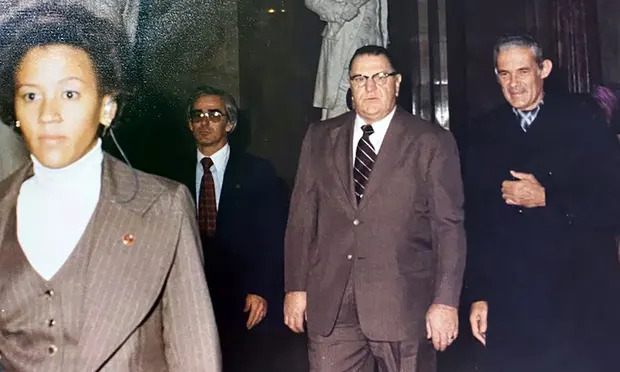Last modified on 2023 Feb 26
–
The first Black woman to have been hired by the US Secret Service, Zandra Flemister, has died at the age of 71, leaving behind as her legacy a rich political career, her fight with Alzheimer’s, and a lawsuit that details the widespread racism and discrimination she suffered during her tenure at the federal agency known for protecting presidents.
Flemister, who died Tuesday, was “a trailblazer” and “inspired a future generation of agents,” the Secret Service’s director, Kimberly Cheatle, said in a statement about her death.
She started her work at the Secret Service in 1974, four years before her transfer out to the foreign service – which in part protects Americans abroad – in 1978.
During her time at the Secret Service, Flemister guarded the families of US presidents Gerald Ford and Jimmy Carter.
“I … wanted to be a trailblazer for other African American women,” she would say later about her Secret Service career. But it’s important to note that statement was contained in an affidavit forming part of a class-action lawsuit that saw more than 100 Black agents and former agents detail a culture of racist discrimination in the Secret Service.
Microaggressions, ultimatums and hostile verbal comments against her peppered her experience at the Secret Service.
A fellow agent once referred to her as a “prisoner” while they were on duty, making her feel “embarrassed and humiliated”, according to a detailed obituary of Flemister in the Washington Post.
The Post recounted how her supervisor told her she would have to abandon her afro-style haircut if she wanted to be promoted. And even after Flemister followed the supervisor’s advice, she felt disrespected and as though she was put on “exhibition”.
Once, a colleague put a gorilla’s picture on Flemister’s identification.
Beyond her own experience, she also described witnessing anti-Black racism from her colleagues. While working with the presidents of Senegal and Grenada during their visit to the US, Flemister heard her white colleagues use the N-word in reference to the leaders of the nations, which respectively are in Africa and the Caribbean.
Her career blossomed after she transferred to the foreign service. She would go on to become the supervisory consul general in Pakistan, and after that she earned selection to the senior foreign service in 2006.
About then, unbeknownst to her, the Alzheimer’s with which she contended was setting in.
By 2010, her symptoms were serious enough that she had to request retirement at the relatively early age of 59.
Long before her retirement, Flemister fought for her rights as well as those of others in the Secret Service who had been victims of racism. A lawsuit filed in 2000 alleged racial discrimination within the agency, and she wrote that she saw it loud and clear during her time that she would not be “allowed to have a successful career in the Secret Service” because of her race.
“My requests for transfers to career-enhancing squads [were] consistently denied, my credibility and competency constantly questioned, and [there was] the common use of racial epithets in my presence,” she wrote.
Her bout with Alzheimer’s eventually became severe enough that it left her unable to follow through the course of the lawsuit.
Flemister’s husband of 42 years, John Collinge, told the Post that she died due to a respiratory failure that was related to her Alzheimer’s disease. Survivors also include her son, Samuel Collinge.
Topics
Most viewed
- –
- –
- –
- –
- –


















